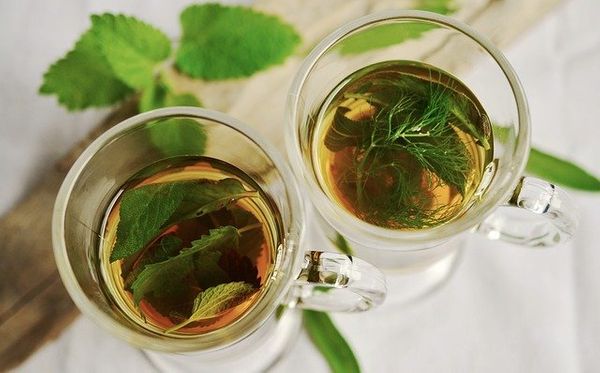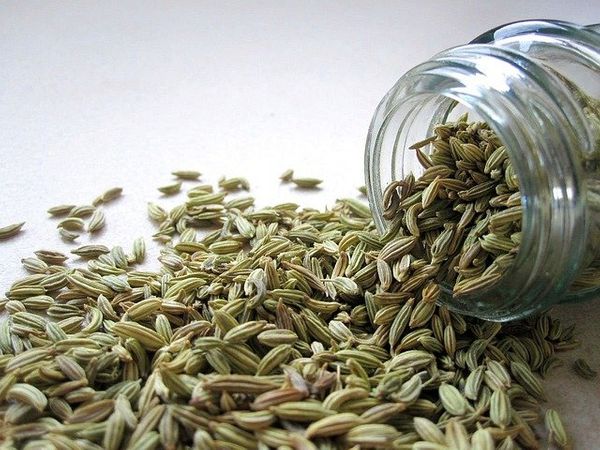Fennel, also referred to as foeniculum vulgare, is a tasty culinary herb and medicinal plant. Green and white fennel plants with feathery foliage and bright yellow blossoms. The fennel plant’s crisp bulb and seeds have a mild, licorice-like flavor. However, the seeds’ rich essential oils make their flavor even more pungent. Fennel and its seeds have a wide range of health advantages, including the potential to have antioxidant, anti-inflammatory, and antibacterial actions in addition to their various culinary applications. Here, let’s check the health benefits of fennel along with it’s uses, nutritional value and more
1. Fennel Benefits: They are Highly Nutritious
Vitamin C, a water-soluble vitamin essential for collagen formation, immunological function, and tissue healing, is found in abundance in fennel. (Source) Your body uses vitamin C as a powerful antioxidant to stave off the harm that unstable chemicals called free radicals do to your cells. (Source) The mineral manganese, which is necessary for bone formation, blood sugar management, cellular defense, enzyme activation, and wound healing, is present in both the bulb and seeds.(Source)
2. Fennel Contains Powerful Plant Compounds
The antioxidants and strong plant chemicals that fennel and fennel seeds contain may be what make them so beneficial. More than 87 volatile chemicals have been found to be present in the plant’s essential oil. (Source) includes the anti-inflammatory polyphenols apigenin, quercetin, chlorogenic acid, and rosmarinic acid. (Source)
Anti-inflammatory polyphenol antioxidants have a significant positive impact on your health. Studies show a reduced chance of developing chronic illnesses like heart disease, obesity, cancer, neurological disorders, and type 2 diabetes in persons who consume diets high in these antioxidants. (Source)
3. Health Benefits of Fennel Seeds: May Suppress Appetite
Fennel seeds may help control appetite in addition to giving your meals depth and flavor. (Source) In a study of nine healthy women, those who drank 8.5 ounces (250 ml) of tea infused with 2 grams of fennel seeds before lunch felt noticeably less hungry and ate fewer calories than those who drank a placebo tea. (Source)

The main chemical in fennel essential oil, anethole, may be the cause of the plant’s ability to decrease hunger. However, another investigation involving 47 women discovered that those who received 300 mg of fennel extract daily for 12 weeks gained a little bit more weight than the control group. They didn’t have a decreased appetite either. (Source)
4. Fennel Can Be Helpful For Heart Health
Fennel and its seeds are rich in fiber, a food that has been found to lower several heart disease risk factors including high cholesterol, so eating them may have a number of positive effects on heart health. High-fiber diets have been associated with a lower risk of heart disease. A daily increase in fiber intake of 7 grams reduced the risk of heart disease by 9%. Magnesium, potassium, and calcium are elements found in fennel and its seeds that are crucial for maintaining heart health. (Source)
5. Fennel May Have Cancer-Fighting Properties
Fennel has a variety of potent plant chemicals that may offer protection from chronic illnesses, including some types of cancer. For instance, anethole, one of the primary active ingredients in fennel seeds, has been discovered to have anti-cancer effects. (Source)

Anethole was found to limit cell growth and trigger apoptosis, or programmed cell death, in human breast cancer cells in a test-tube investigation. (Source) Fennel extract inhibited the growth of human breast cancer cells and caused their death, according to a different test-tube study. (Source)
Nutrition And Nutritional Values Of Fennel
100g of Fennel have the following nutritional value
- Water 90.2 g
- Energy 31 kcal
- Energy 129 kJ
- Protein 1.24 g
- Carbohydrate, by difference 7.3 g
- Fiber, total dietary 3.1 g
- Sugars, total including NLEA 3.93 g
- Calcium, Ca 49 mg
- Iron, Fe 0.73 mg
- Magnesium, Mg 17 mg
- Phosphorus, P 50 mg
- Potassium, K 414 mg
- Sodium, Na 52 mg
- Zinc, Zn 0.2 mg (Source)
Side Effects Of Fennel
Estragole, which is found in fennel, might not be safe for babies or any person when they’re exposed to it in large quantities. Fennel tea shouldn’t be consumed if you are expecting – Your pregnant body, which is already experiencing an increase in all kinds of hormones, may become confused by the estrogen that is triggered in the oil of the fennel seed.





